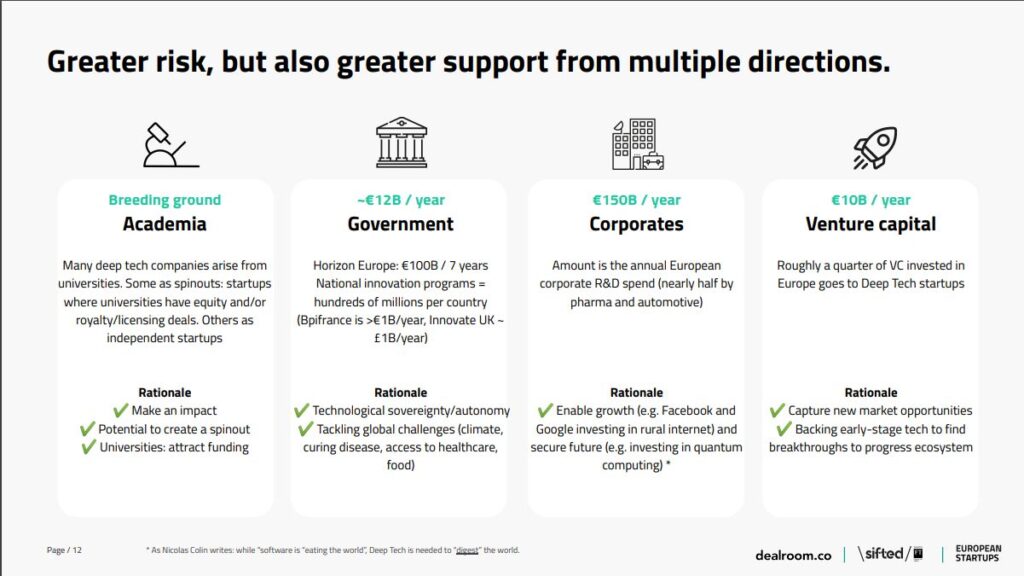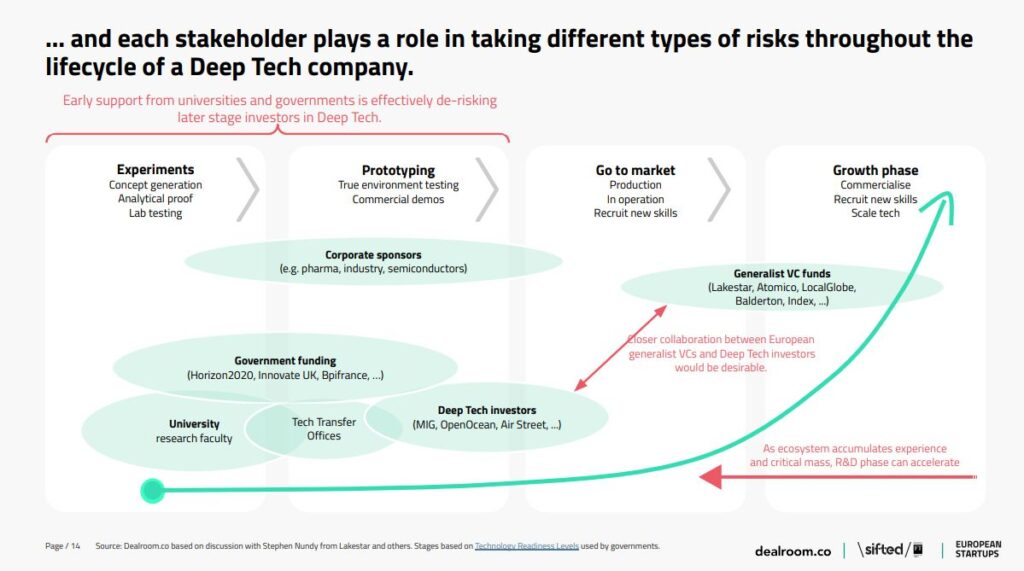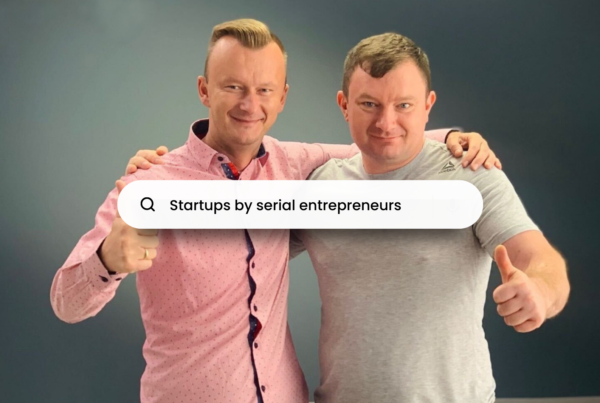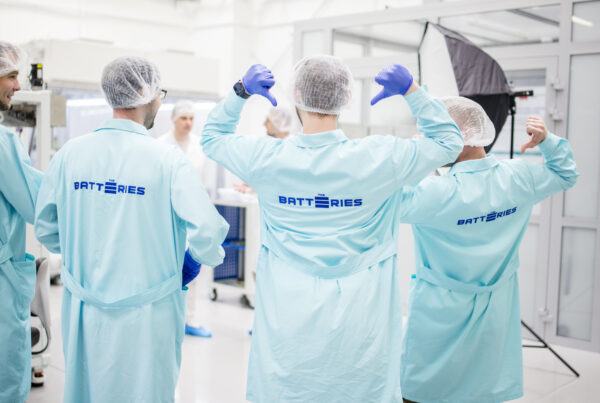Low risk deep tech investments are now a reality, thanks to these 4 stakeholders
The term “Deep Tech” has recently become widely used. And not just among a selected group of entrepreneurs and investors. Universities are using the term “sciencepreneurs” for people like Michał Bieniek and his Apeiron Synthesis team – as boldly as hip startup journalists.
But with long development times, it’s no surprise that deep tech startups often need the support of various stakeholders to succeed.

Universities
Academia is a crucial stakeholder in the deep tech ecosystem. Universities and research organisations promote deep tech advances and offer companies experience and resources.
Bieniek began studying metathesis while earning his doctorate in Poland and France a decade ago. He invented a catalyst and joined Schering-Plough. Even at 70,000 euros a kilogramme, the U.S. company bought it.
Academia is motivated to support deep tech startups because it allows them to extend their research beyond the laboratory and into the real world, providing valuable insights and feedback that can improve the quality of their research. Additionally, academia can benefit from the financial and other resources that deep tech startups can provide.
Governmental agencies
Public institutions and government bodies promote deep tech businesses by supporting them.
Public organisations and government agencies encourage deep tech firms to boost economic growth and create high-skilled jobs in their region. It can address complicated societal concerns and improve residents’ lives. Public institutions and government agencies gain from keeping deep tech startups’ IP locally..
At a time, the Wrocław Technology Park made the decision to agree to fund the purchase of the necessary equipment, which cost more than one million zlotys for the newly founded Apeiron Synthesis. In total, the company has been awarded close to 1 million euros in the form of funding from the Foundation for Polish Science, the Polish Agency for Enterprise Development, and the National Centre for Research and Development.
The funding provided by the state was adequate for the development of the catalyst, the fitting for mass production, and the operations leading up to sales. In 2011, when the initial pharmaceutical industry catalyst was completed and suitable for use, the company submitted its initial patent application.

Investors
Venture capital (VC) firms are another important stakeholder in deep tech. They provide the financial support that deep tech startups need to overcome their challenges and reach their potential. VC firms are motivated to invest in deep tech startups because it can provide high returns on their investments. Deep tech innovations often have the potential to disrupt entire industries and create new markets, which can generate significant profits for investors. Additionally, VC firms can benefit from the expertise and insights that deep tech startups can provide.
Apeiron Synthesis team was no brainer when it came to the investment both for Altamira Partners back in 2017, and for Aper Ventures now:
- The potential for high rewards – when it comes to Apeiron Synthesis we believe in the potential of this deeptech solution – the company was among top 10 patent holders in Poland. We see a potential for growth of the client base in fields like advanced chemistry and pharmaceuticals.
- Supporting innovation and progress – we see investing in deeptech as a way to support the development and growth of innovative technologies that have the potential to drive economic growth and progress. With use of olefin metathesis it is already possible to produce perfumes, drugs and plastics much cheaper. By financing it, we can help to further develop and popularize game-changing technologies to market.
Corporates
And finally, corporates are important stakeholders in deep tech as they can provide opportunities for deep tech startups to commercialize their products and services.
Apeiron Synthesis has gained top clients worldwide and nationally by offering a more cost-effective, efficient, and environmentally friendly way to produce a wide range of products. Corporates were motivated to support this deep tech startup (and many others similar ones) because it can provide them with new technologies and innovations that can improve their operations and products.
The team of scientists at the startup is able to provide expert guidance and support to corporations looking to integrate this technology into their production processes. It has helped Apeiron to establish itself as one of the leaders in the field and gain the trust of top clients around the world.
It’s a win-win. Innovations like that can help corporates to stay ahead of the competition and gain a competitive advantage in their market.
In short, the collaboration and support of these various stakeholders make deep tech a safe investment. From academia to VCs and corporates, the deep tech ecosystem provides the necessary resources and expertise to overcome the risks and challenges of deep tech innovations.
Aper Ventures lead the $4.8M investment round in Apeiron Synthesis together with Orlen VC and Adamed dedicated fund.
About Aper Ventures
The fund supports deeptech and hardware startups that demonstrate proven competitive advantages and significant global potential. Originally, the team has managed founded in 2014 as a 100 million PLN Meta Ventures, investing in more than 20 entities. As of 2019, it makes investments primarily under Aper Ventures with support of network from Aper Angels. The value of its assets under management is around 130 million PLN, of which only since 2019 the fund has invested 50 million PLN. It has three companies in its portfolio: The Batteries, Surge Cloud and Talent Alpha.
If you believe that your company might be a good fit to our portfolio, tell us a little bit about your business and your team. We typically have a lot of applications so give us some time to respond → SUBMIT AN APPLICATION






